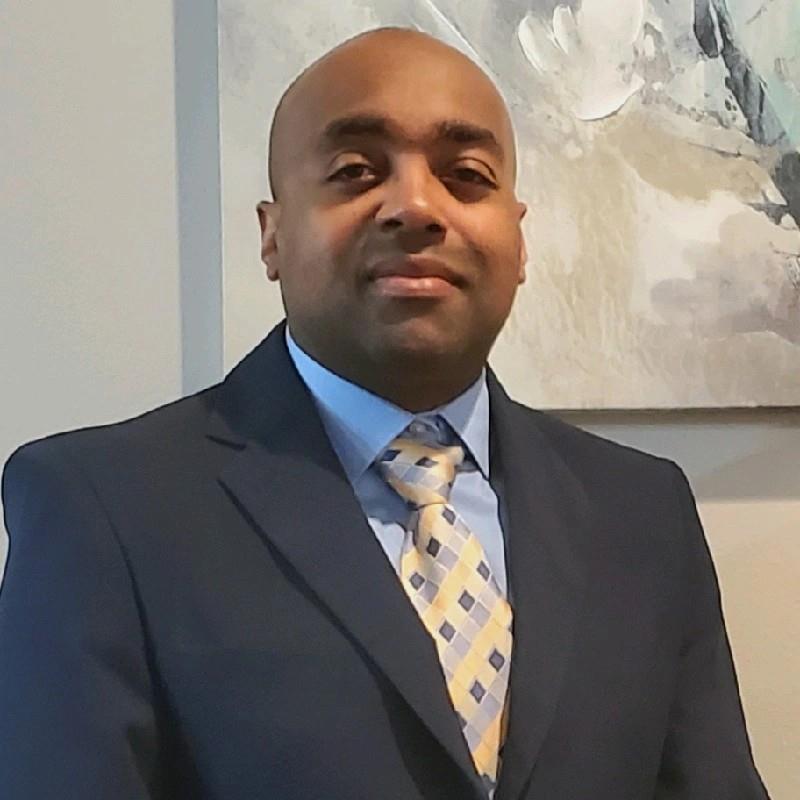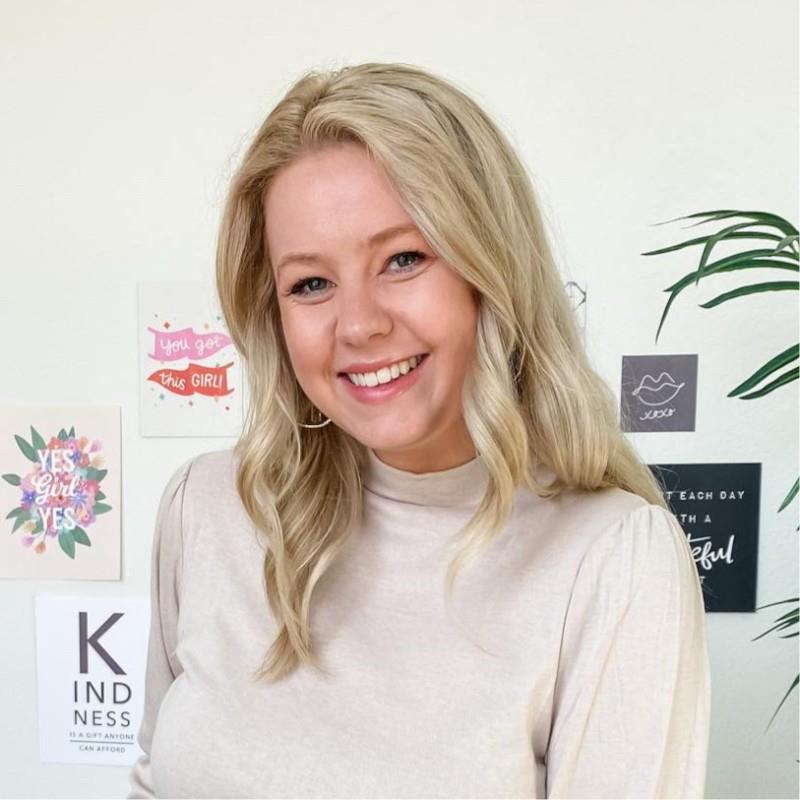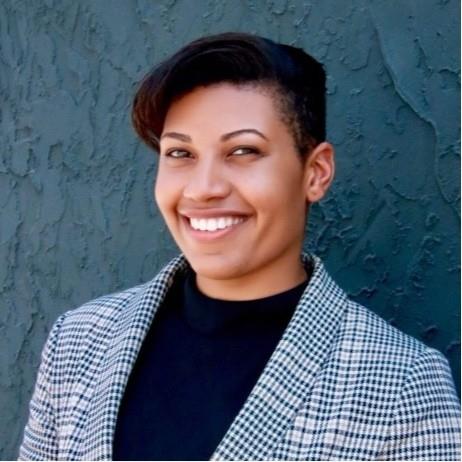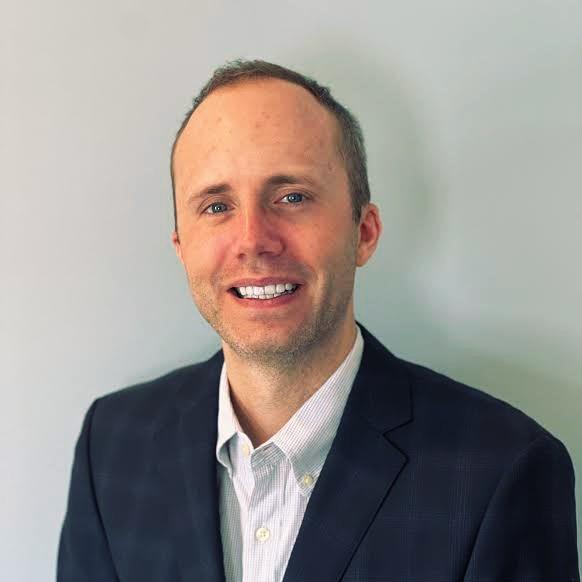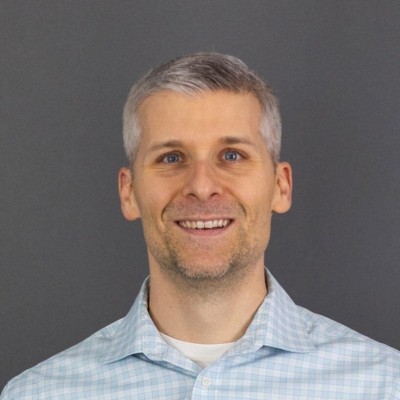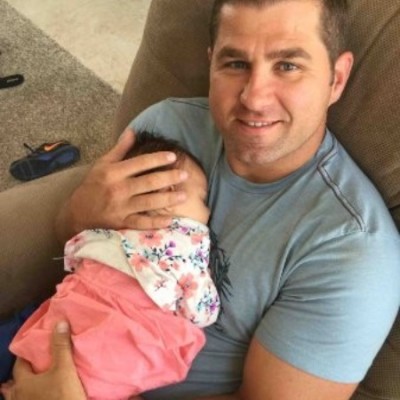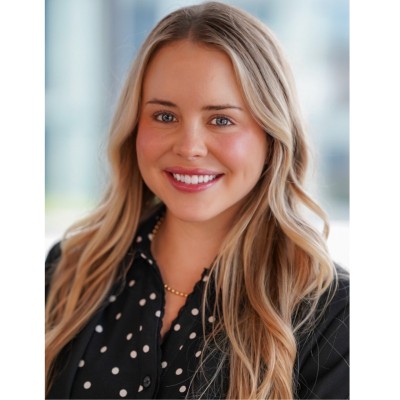What is the best way for a medical sales rep to approach a medical professional in a hospital setting? What is the state of nursing today, and what challenges is the profession taking? What do nurses need to know if they want to consider medical sales as an alternative career? These are three very interesting questions that our guest for this episode tackles. Daniel Wright is a Chief Nurse Executive who has worked his way from staff nurse all the way to nursing director and beyond. Passionate about healthcare, Daniel has made it his personal mission to empower nurses and other healthcare professionals to advocate for better culture and working conditions that will allow them to do what they do best. He is also extremely open to the possibility of nurses seeking opportunities in other spaces like medical sales. If you’re a nurse that’s been thinking about getting to the medical sales space, this is an episode you absolutely have to listen to. Tune in!
The CE experience for this Podcast is powered by CMEfy – click here to reflect and earn credits: https://earnc.me/gZjNX6
—
Watch the episode here
Listen to the podcast here
Nursing Today And The Best Medical Sales Rep’s Approach With Daniel Wright
In this episode, we have with us another special guest and he goes by the name of Dan Wright. If you are a nurse that has been thinking about getting into the medical sales space, this is an episode you have to read. As always, we are doing our best to bring you guests that are doing things differently in medical sales. I hope you enjoy this interview.
—
Daniel, how are you doing?
I’m great. How are you?
I am fantastic. Why don’t you tell everybody who you are and what you do?
I started as a tech while I was putting myself through nursing school, which I cashed in my 401(k) at the age of 29 to put myself through nursing school. The ironic thing is when I went to bedside care and took this on as a second career, I did it for a passion. I wanted to help. I looked at the end of my life and said, “What do I want to accomplish? What do I want to say I did? I want to make a difference and impact in people’s lives.”
When I left leadership and put myself through nursing school, I figured I never wanted to get into leadership again because I cared for taking care of patients. I was inspired and passionate about it. I always say, “When you want to make God laugh, have a plan because opportunities present themselves.” I figure I’m on a platform where I can help advocate more for nursing in the profession. Throughout the several years I have had, I have moved up.
You cashed out your 401(k) and put yourself in nursing school. Let’s go back even further out of college. What did you want to do? What career was that you cashed out on?
I was in the insurance industry for several years. I was the underwriting manager at the age of 21. I went into Psychology and History as my minor. I didn’t know. I look back and think we all do as we get older and wiser. We say, “Do we know what we want to do for the rest of our lives at the age of eighteen?” I was fortunate enough to put myself in a position and have the fundamentals of leadership and what professional practice looks like. Cashing out my 401(k) was the only option to make my dreams come true when I realized what I was called to do.
What was it? Were you insurance sales? Was it an experience? Was it you woke up one day and said, “I want to be a nurse?” What was the a-ha moment for you?
I was taking a lot of time. I was traveling a lot during that time. I would sit there and think to myself, “What is it that I want to do for the rest of my life?” In the twenties, it is about having fun, making money and living the life. Before I knew it, 30 was approaching. This is a pivotal moment. What do I want to do? What do I want to say that I accomplished when I’m on my deathbed? I want to say that I made a difference.
I always had a knack or calling to healthcare. I didn’t know what that was. I started researching and understanding what nursing was and the opportunities it had and provided that I could help on multiple levels. With the range that nursing provides and offers, it was an easy decision for me to go into nursing because I can take care of people. I can have that compassionate side, connect with people, heal people and be with people during the most difficult times of their life. For me, that was monumental. My a-ha moment was, what is the biggest impact I can have?
You want to be there. You put yourself in that situation. After your first year of nursing, was it what you thought?
No, it was a lot harder. It is somewhat misunderstood in terms of the dedication and the time you have to put into it. It is not easy. It is not meant to be easy because you are dealing with people’s lives. It shouldn’t be easy. I don’t regret a single moment of it. Some of it goes to my personality, which is being an overachiever. I try to overachieve in everything I do because there are some personal reasons as to why I feel that way and why I work that way but failure is not an option. I was going to do this and I loved it, although it was difficult.
[bctt tweet=”Being a nurse is not easy, and it’s not meant to be easy because you’re dealing with people’s lives.” via=”no”]
How long were you a nurse bedside? When did you make that transition into leadership?
For three years, I was bedside. Having the leadership fundamentals and being a leader for multiple years prior to that, some things came naturally. I started putting myself in places where I could make a bigger difference. I put myself on a project to create a comprehensive education program for surgical patients. That garnered some recognition in the community I was in.
People started talking to me about leadership positions. The more opportunities I had or presented to me, I had to think about, “I’m stepping back a little bit further from the bedside.” Being 100% bedside to administrative. I’m providing leadership skills. I had to reflect on saying, “The more that I’m moving in a different direction from the bedside, I wanted to make sure that it was purposeful for me.”
Let’s go back to your bedside days. What was your interaction with the medical sales world? Were you in a specific specialty? If you were, what type of medical sales reps were you interacting with?
I worked in neuro as a bedside nurse. My interactions with medical sales were about some training programs or clinical training that took place if we were obtaining a new medical device or something to take care of our patients. The interaction was the education part. As I have moved up in my career into a more leadership role, I have had different interactions with medical sales. I have had some good and great interactions and not-so-great interactions.
It is a wide variety. It is on the person and the approach to what medical sales are. People hear sales period and they start running away. It is about an introduction to something, whether it is tools, equipment or supplies that can benefit patient care. That is the approach that is going to hit home for healthcare providers.

Share with us the different types of medical sales reps you interacted with and what you qualify as making a good sales rep versus a seller that needs a lot of development.
Some of the interactions I have had that left room for opportunity or were somewhat challenging are when medical sales reps come and knock on my door. I have been in meetings and they would wait for me to come. I’m thinking to myself, “All of our time is valuable. You can’t just show up on someone’s doorstep and expect them to be free.” It is that introductory period and how you approach the situation or what it is you are trying to educate someone on or gain interest in. The intro period is the most critical for me because how you approach me is going to determine our relationship from the start.
After that introductory period, what would you say are some qualities that make a stellar medical sales professional from your experience?
I have had one that I had a great relationship with. The approach there was communicative in terms of I wasn’t getting calls every day but there was a natural follow-up that would occur. We would meet and talk about the equipment that specifically they were trying to have us secure but it was done in such a gentle way to say, “Do you mind if we come and do this? Do you mind if we have a follow-up conversation after you have seen the equipment or the tools?”
It was that gentle organic relationship we built. It wasn’t built on, “When are we going to get an invoice? When do you guys want to get an invoice? When do you go? When do you want to pay? When can you pay?” It wasn’t about the financial drive. It was about the relationship. That was the most important and greatest relationship I have had with medical sales.
A lot of our readers want to get into medical sales. They might be in a medical sales environment where they don’t deal a lot with nurses. Where did you fall in the decision-making process when you dealt with medical sales reps? Let’s get a little more specific. What devices were you specifically approving or not approving medical sales to use with patients?
It was a little bit of a mix of everything because, under nursing, I have had surgical services report to me. I have had emergency department report to me, inpatient and Cath labs. It has been a range of different medical devices, equipment and tools I have been involved in, whether it is decision-making or being part of the decision-making. It varied.
For the audience to understand and maybe it is specific to the role of a chief nurse versus a bedside nurse, where does the nurse fall in terms of the decision-making process? How important or critical is it for a medical sales professional to involve you in that process?
It is very important. At the end of the day, it depends on who is using the equipment and tools. If nurses are using it or are going to be involved in using it, they should, myself and bedside nurses, be at the table. It doesn’t matter what you bring in. If it is not efficient, effective and easy to use, what would be the purpose? We need to make sure we have that multidisciplinary impact and conversation engagement and that the decisions we are making are right for our patients and caregivers.
Let’s talk about the state of nursing. I’m going to let you have the floor here. Where would you say the state of nursing is? I want you to consider COVID and nurses coming in and coming out.
We are at a pivotal moment and we have been for some time. The pandemic has taken some of these important topics, such as where nursing is in the profession. What can we do for nursing? What can nurses do for our community? How do we elevate that? During the pandemic, it has helped nurses rise to the top to say, “We deserve this. Here is what we are asking for.”

Nursing has found a voice in the healthcare community, which is positive. When you are looking at the statistics, nursing makes up the greatest portion of healthcare. Without nursing, what do you have? You can’t care for patients if you don’t have nurses. I always say, “I’m a nurse first. I’m a nurse executive second.” I never want to lose focus of, “What did I get in this to do?” It is to make a difference in people’s lives. I’m doing it not just for patients but also for our nurses.
There have been quite a few things that have come out. What we have learned over the past few years is one is nursing needs to be at the table. Nursing has to have a voice in healthcare. Third, we have to address what issues are impacting nursing in doing their job, function and passion for caring for people. How do we make that as easy as possible? What tools, equipment, supplies, pay, structure, engagement, involvement and empowerment do our nurses need to be as successful as they can?
When you talk about that, that seems like a multifaceted issue. Where do you start? Where do you make the biggest impact?
You start everywhere. The reason I say that is it is a comprehensive view. It is not like we solve one challenge and it is going to make all of this go away. We have to get nurses to the table. We have to get the government and hospital leaders to listen. I’m speaking from my experience and who I am as a leader. The most important thing we do is get to the table and say, “What can we solve for now, tomorrow and the long-term?” We can’t fix everything tonight. We can create a trajectory on where we need to go to ensure we are creating the best place for our nurses to prosper in their passion.
[bctt tweet=”We have to get nurses to the table. We have to get government to listen. We have to get hospital leaders to listen.” via=”no”]
Is pay typically the first thing that is addressed?
It depends on where you are at because every leader in every organization is different. I don’t want to speak for any organization other than there is an opportunity to look at pay, depending upon where you are at. There are healthcare systems that pay well. There are healthcare systems that if you look at the median or compensation analysis are maybe a little off from what the average or the median is. We need to look at that as a whole.
We are seeing nurses who are going into traveling mode. They are making X percentage higher than a bedside nurse is but you also look at the benefits that are being offered. Pay is a portion of the conversation but the biggest conversation we have is about the culture, tools, equipment and how we staff our nurses for patient care. It is multifaceted. It goes into looking at what the bigger plan is. What can we do now and tomorrow? What can we do down the road? It does include government.
We speak to a lot of nurses. I like to break it up into almost two perspectives. COVID has taught me that I’m where I need to be. I’m doubling down. I’m going to give this career everything I have to offer. The other side of that is COVID has shown me that I want to explore where I can leverage my abilities to make a different impact in patients’ lives. What would you say to that?
The true North compass for anybody is, what is your passion? What do you want to do? How do you get there? It takes all of us coming together, specifically as leaders, to help remove the barriers or the challenges from someone being as successful about their passion and what they want to do and helping them navigate how to get there.
You talked about medical sales. I want to specifically talk about how it is not something that a lot of nurses mind that is a career option. When I have conversations with nurses about what they want to do and where they want to go because my goal is I want to keep nurses within our organization. That way, I can help them prosper in their passion for what they want to do and provide those growth opportunities so they don’t have to leave to go get it.
However, you may not have positions available for people to try out, for example, medical sales. Most hospital organizations don’t have a medical sales department. If that is a career path that somebody wants to go down specifically like your company is focused on helping people with the fundamentals, training and elevating them and what medical sales are, how to get there, how to be successful and how to develop sales strategies, if that is something they want to do, when I provide them that resource and the link specifically, I’m talking to you about your organization, it is to how to go down that path.
If they want to get into clinical informatics, I want to provide them with more project opportunities and growth for how they get involved in clinical informatics or if it is education. We have to have better succession plans. We don’t lose people externally but we lose people to move towards their passion because if people are passionate about what they are going to do, the patients and the community are going to be successful.
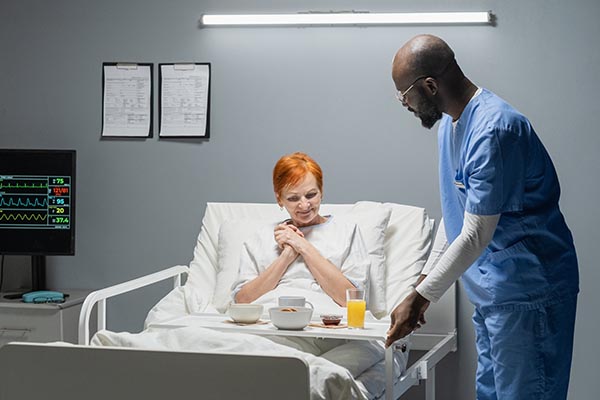
In that same vein, have you experienced a medical sales professional that was previously a nurse? Have you had that interaction before?
Whether it is the pharmacy side or the medical sales side, there have been nurses who have transitioned over into that field and have done very well. A lot of times, they are doing the clinical education part and a lot of the behind-the-scenes on what clinical and how the medical devices impact the clinical settings.
When you experience a professional that used to be a nurse, do you have a better connection with that professional? Does it not matter? What is your experience?
It always does matter. If I’m a nurse talking to another nurse, I have that sense of family. You are already part of that and get a sense of trust. Nursing has been rated, several years in a row, as the most trusted profession. It is a natural relationship that occurs because of that. I’m not saying there are people who have personality differences but the profession itself is that natural connection and language.
We have nurses reading this. For all the nurses who have maybe thought about or even read this and thought, “I want to dive into healthcare sales and a medical sales position as a clinical specialist or add value in that way,” what would you say that all nurses out there reading this should consider and think about if they are entertained going in that direction?
I’m going to go back to what I said. What is your passion? What is driving you? What is your motivation? That should be your guide to where you need to go. If it is education, clinical informatics, quality, safety or medical sales, follow that dream, make sure you have the right resources to help you get there and ask questions.
[bctt tweet=”What is your passion? What’s driving you? What’s your motivation? That should be your guide to where you need to go.” via=”no”]
You always want to ask questions to somebody who is in the role or somebody who is going from bedside nursing to medical sales. Talk to somebody who is doing it. That way, you can get more insight before you make that jump to make sure that it is right for you. Oftentimes, people get into careers or workplaces and figure out it is not always what it seems to be. The best thing people can do is educate themselves. One way to do that is to speak to somebody already doing it.
One more question along those same lines. A lot of people are reading this that want to get into medical sales and are in medical sales. What piece of advice would you share with those medical sales professionals reading that they should always remember when they are interacting with nurses at their accounts?
The first thing that comes to mind is time. Consider the time because we are all going in many different directions, specifically when our nurses are conducting patient care. Time is of the essence. There is not a lot of it. Consider time. Consider what it is that is important to the nurses. Sometimes salespeople go in with this organized pitch they want to deliver but it doesn’t always resonate. Make sure it is specific and focuses on who the audience is.
Daniel, this has been a fantastic episode to share with you and allow everyone to know everything you are experiencing from your end, your side of things and all the wonderful advice you have given us. We got another set of questions. This is called the lightning round. The first question is, what is the best book you have read in the last several months?
It is If Disney Ran Your Hospital.
Tell us what that is about. That sounds like an interesting read.
It takes Disney as a whole because it is the most wonderful place on earth. It breaks it down into how they approach quality, safety and customers. You can take anything from it and put it into your life or organization. It is a great read. I’m a Disney fan.
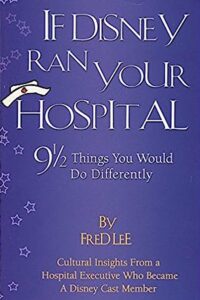
Was it written from the perspective of a hospital CEO or a nurse?
It wasn’t like somebody from Disney themselves.
Next question. Best movie or TV show you have seen in the last several months.
It is You People.
I haven’t heard of it. What is that?
Nia Long is one of my favorite actresses. Eddie Murphy is in it and Jonah Hill but it is about an interracial couple that is going down this marriage path.
I have seen the advertising. He is Jewish.
Yes. It is about two different cultures that impact two people who love each other.
If it is a restaurant, that can suffice. The best meal you have had in the last several months.
I went to visit friends in Huntington Beach, California. They took me to SUR, which is in West Hollywood. The gnocchi there was delicious. The environment and ambiance all added up. That would be the best meal I have had.
Lastly, the best experience you have had in the last several months.
It is going to be bittersweet but it has been over Christmas. I’m spending time with my family. My grandmother passed away on Christmas Eve. At the same time, seeing people I haven’t seen in a long time. It brought back the feeling that we shouldn’t wait to see people we care about until something happens. We should be reaching out to all of our loved ones and letting them know, even if it is a quick, “Hi, I’m thinking of you.” Let people know they are cared about and valued.
Daniel, it was a pleasure spending this time with you on this episode. Thank you so much for being on the show. We look forward to hearing more from you in the future.
Samuel, I wanted to say something in the beginning that we didn’t get a chance to say but I want to recognize Black History Month and all of our African-American brothers and sisters who have done so much on global impact but specifically, we are talking about healthcare. I wanted to recognize that and say, “Thank you. I’m always happy to partner with all.”
Thank you, Daniel.
Thank you.
—
That was Dan Wright. What a wonderful story he had to share with us. Some of you might be reading this and thinking to yourselves, “I want to work in the space that Dan is talking about. I want to work alongside people like Dan.” Maybe you are a nurse wanting to get to the other side and have thought about medical sales.
You met some medical sales reps and you thought, “I can do this. I wonder what it would be like if I could be in this career. I wonder what it would feel like if I was the one talking to providers, selling them life-changing therapies, life-changing devices that do so much for many people. What would it look like for me?”
It’s the opportunity to take your career as far as you want to take it with almost what might seem like an endless ladder of evolution and progression. If that is you and you had these thoughts, you played with the idea and wanted to take a step in that direction, you need to visit EvolveYourSuccess.com and let us help you get to where you want to go.
Another thing I would like to share for those of you reading is please feel free to leave a review. Something we might start doing in a future episode is for good reviews, give a little shout-out on the show. It is something I have always thought would be fun and something I would love to do with you all. As always, thank you for reading. Make sure you tune in for another episode.
Important Links
- Daniel Wright – LinkedIn
- If Disney Ran Your Hospital
About Daniel Wright
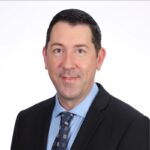 Daniel Wright, MHA,BSN, RN, NE-BC, has more than 19 years of combined leadership experience. Earlier in his nursing career, he worked his way from staff nurse to charge nurse, nurse manager, nursing director and beyond. He has taken on leadership roles overseeing perioperative services, clinical operations and patient care services, and also served as corporate director of care delivery at HCA Corporate.
Daniel Wright, MHA,BSN, RN, NE-BC, has more than 19 years of combined leadership experience. Earlier in his nursing career, he worked his way from staff nurse to charge nurse, nurse manager, nursing director and beyond. He has taken on leadership roles overseeing perioperative services, clinical operations and patient care services, and also served as corporate director of care delivery at HCA Corporate.
Recently, he has served as Chief Nursing Officer in MetroWest Boston and as a system Chief Nursing Officer in New York. Prior to that, he was Chief Nursing Officer at HCA Healthcare’s Oak Hill Hospital in Brooksville, Florida. In that role, he led a significant improvement in patient experience scores and a reduction in nursing and PCT turnover.
Wright received his Associate Degree in Nursing from Hondros College School of Nursing, and both his Bachelor of Science in Nursing and Master in Health Administration from Ohio University. He also completed the HCA Executive Development Program in conjunction with Harvard Business Review, where he received the EDP CNO Award in 2020. He believes in people-centered leadership and making connections with all those he serves from caregivers, patients, and the community.
Dan is originally from Ohio and enjoys spending time with his family and friends along with traveling.
Love the show? Subscribe, rate, review, and share!
Join the Medical Sales Podcast Community today:
